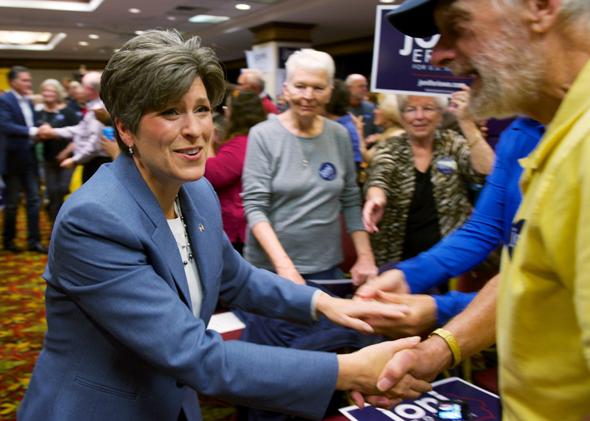For all Mitt Romney’s aloofness and bumbling inauthenticity, he had one quality that served him well as a presidential candidate: He looked like a moderate. Yes, he used right-wing rhetoric in the Republican primary, and yes, he endorsed policies to the far right of the political mainstream (“self-deportation”), but in his affect and demeanor, he seemed centrist. To that end, in the final polls of the election, a plurality of voters perceived him as being a moderate candidate.
Of course, President Obama won the election. But the reality of this perception of Romney is still important, since it confirms a truth of American politics: Most voters can’t judge ideology from policies. They don’t know how. Instead, they judge from appearance and presentation: angry-sounding politicians are “extreme”—even if they hold mainstream views—and pleasant-sounding politicians are “moderate,” even if they fall far to the right or left of the median voter.
Why is this important? Because it’s popped up in the fight for control of Congress, and in particular, coverage of the races in Iowa and Colorado, two states that could decide who controls the Senate.
Specifically, both states feature Republican candidates with substantively extremist views on a variety of subjects. In Iowa, Joni Ernst has endorsed impeachment for President Obama; gestured toward nullification of federal laws; supported “personhood” laws, which would classify the fetus as a legal person as well as outlaw abortion and some forms of contraception; and talked extensively about a far-right conspiracy involving an obscure United Nations document.
Ernst has a partner in Cory Gardner, the Colorado Republican running a strong challenge to Sen. Mark Udall’s re-election campaign. As a House member, Gardner sat on the right wing of the GOP majority. He supported the government shutdown, voted with Rep. Steve King to strip funding from the administration’s deferred action program for young unauthorized immigrants, co-sponsored a bill narrowing the exception to federal abortion funding to “forcible rape,” and endorsed a federal personhood amendment that—like the state amendments—would radically redefine the scope of women’s reproductive rights.
With these out-of-the-ordinary views, you’d expect heightened scrutiny of Gardner and Ernst, above and beyond the criticism we give to more predictable mainstream candidates. Instead, we’ve seen the opposite. Reporters and observers have turned their attention to the not-substantive “gaffes” of their Democratic opponents. “It’s hard to think of a candidate who’s made as many high-profile gaffes as (Bruce) Braley,” writes Politico, citing petty complaints about the government shutdown—“There’s no towel service, we’re doing our own laundry down there,” said Braley in reference to the House gym—and attacks on Republican Chuck Grassley as “just an Iowa farmer.”
Likewise, in Colorado, Udall has been criticized for the rhetorical focus of his campaign—reproductive rights—while Gardner has escaped any criticism of his substantive positions. Indeed, in the Denver Post endorsement of Gardner, the newspaper dismisses criticism of Gardner’s campaign positions—“Contrary to Udall’s tedious refrain, Gardner’s election would pose no threat to abortion rights”—and turns its aim toward Udall’s strategy: “Udall is trying to frighten voters rather than inspire them with a hopeful vision. His obnoxious one-issue campaign is an insult to those he seeks to convince.” Gardner, by contrast, is praised as a reasonable force who could build compromise with President Obama in a GOP-controlled Senate. That this is incompatible with everything we know about his views doesn’t seem to matter.
Writing for Mother Jones, Kevin Drum says this is unavoidable: Most reporters don’t parse the policy views of candidates and focus on optics in their coverage of the horse race. “Generally speaking, policy views are out of bounds for political reporters, regardless of whether they’ve changed or whether they’re transparently absurd,” he writes.
Added to this, I think, is affect. If Ernst were Michele Bachmann, she’d have a problem—in the eyes of most people, and the press, she’d look like an extremist. As it stands, and despite their hard-right views, neither Gardner nor Ernst comes across as an ideologue. Instead, like Rep. Paul Ryan—who blends a “wonky” persona with radical politics—they seem affable and pragmatic, even as they stand at the right-wing pole of the Republican Party. It helps too that they’ve run personality-centered campaigns, Ernst as an authentic Iowan par excellence, and Gardner as a “nice guy” with a “smile and a backslap and the enthusiastic air of someone who treats every stranger as a friend.”
To be clear, if Gardner and Ernst are leading the polls—and, all things equal, likely to win—it’s largely due to demographics; with an older, whiter, and more conservative electorate, Republican candidates have much better odds of winning in a midterm election than in a presidential year. Still, Republicans should be thrilled by the success of Gardner and Ernst: As ideologues with moderate personas, they are templates for future success.
After all, if—provided a smile and a firm handshake—the press will give a pass to far-right views, then for candidates, why would you choose otherwise?
